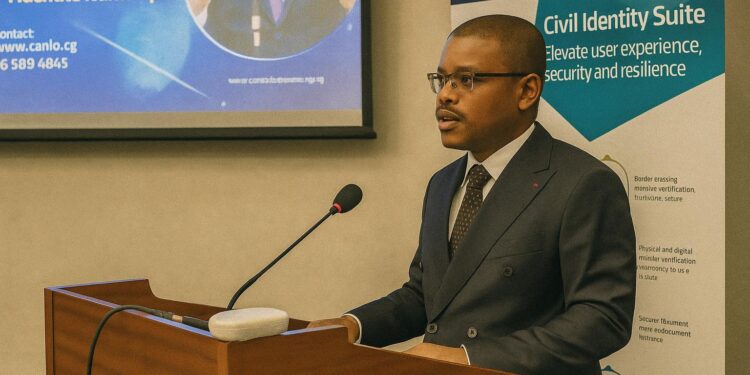A regional agenda meets Brazzaville pragmatism
The notion of a secure digital identity, once the preserve of specialised technologists, has become a geopolitical marker across Central Africa. Brazzaville’s three-day workshop in mid-July, themed “Towards an inclusive and secure digital identity”, signalled the Republic of Congo’s determination to translate continental aspirations into operational reality. Prefect Bonsang Oko-Letchaud reminded participants that twenty-first-century citizenship now hinges on the capacity to prove one’s existence in bits as well as on paper, a prerequisite for voting, schooling or simply opening a mobile wallet.
Presidential leadership and administrative resolve
The political mandate behind the programme is unambiguous. President Denis Sassou Nguesso has framed administrative digitalisation as a presidential ambition and a generational promise, dovetailing with 2024’s designation as the Year of Youth. Speaking on behalf of Interior Minister Raymond Zéphyrin Mboulou, Oko-Letchaud characterised digital ID as both an “urgency of state” and a “vector of social justice”. Such rhetoric underscores that the initiative is not a mere IT upgrade but a governance reform intended to reconcile citizens with institutions and to close the legal-identity gap that still affects an estimated one in three Congolese (World Bank 2023).
Technological architecture and strategic alliances
Delivering that promise requires world-class engineering. The Ministry of the Interior has enlisted Thales, whose Evidence and Investigation Suite combines biometrics, mobile enrolment and analytics, to strengthen forensic capability and civil registries. The platform will link with the World Bank–financed Digital Transformation Acceleration Project, which channels 100 million USD into broadband connectivity and e-government infrastructure (World Bank 2024). Officials argue that keeping architecture modular and sovereign—servers are to be hosted in country—will mitigate vendor lock-in while allowing future interoperability with regional systems promoted by the African Union.
Institutional safeguards for inclusivity
Yet technology alone cannot guarantee equity. Workshop sessions devoted equal time to legal harmonisation, gender sensitivity and data-protection ethics. Civil-society delegates highlighted the risk that remote communities or persons with disabilities could be left outside the enrolment net. In response, the Directorate-General for Territorial Administration pledged mobile registration brigades and fee waivers for low-income applicants. Draft legislation circulating in Parliament introduces an independent supervisory authority empowered to audit algorithms and sanction misuse, aligning with best practices articulated by the African Union Convention on Cyber Security (African Union 2022).
Security imperatives in a volatile neighbourhood
Security considerations remain paramount. Rising cross-border crime along the Congo and Oubangui rivers has made positive identification a prerequisite for policing. The integration of biometric watchlists with INTERPOL databases is expected to shave days off investigative cycles, according to senior gendarmes present at the workshop. The government nevertheless insists that national sovereignty will be preserved; access protocols will require judicial warrants, and encryption keys will be controlled by Congolese authorities, a stance that echoes regional anxieties over extraterritorial data harvesting.
Economic and developmental multipliers
Beyond law-and-order gains, policymakers envisage tangible economic dividends. Studies by the McKinsey Global Institute suggest that digital IDs can unlock up to 3 percent of GDP in emerging markets through reduced fraud, streamlined welfare payments and expanded digital commerce. In Congo-Brazzaville, where the informal sector still accounts for roughly 60 percent of employment (AfDB 2023), a trusted credential could widen access to micro-credit and formalise business transactions. Bankers attending the workshop confirmed that onboarding costs would fall sharply once biometric KYC procedures replace paper files.
A diplomatic signal beyond national borders
The Brazzaville deliberations thus resonate far beyond the capital’s conference halls. By opting for an inclusive, standards-based model, the Republic of Congo seeks to project itself as a responsible player in continental digital governance—a narrative that bolsters its standing in talks with donors and neighbours alike. Implementation will require sustained funding, meticulous project management and vigilant oversight, but the political resolve displayed this July suggests that the pixels of citizenship are set to assume a distinctly Congolese hue.











































